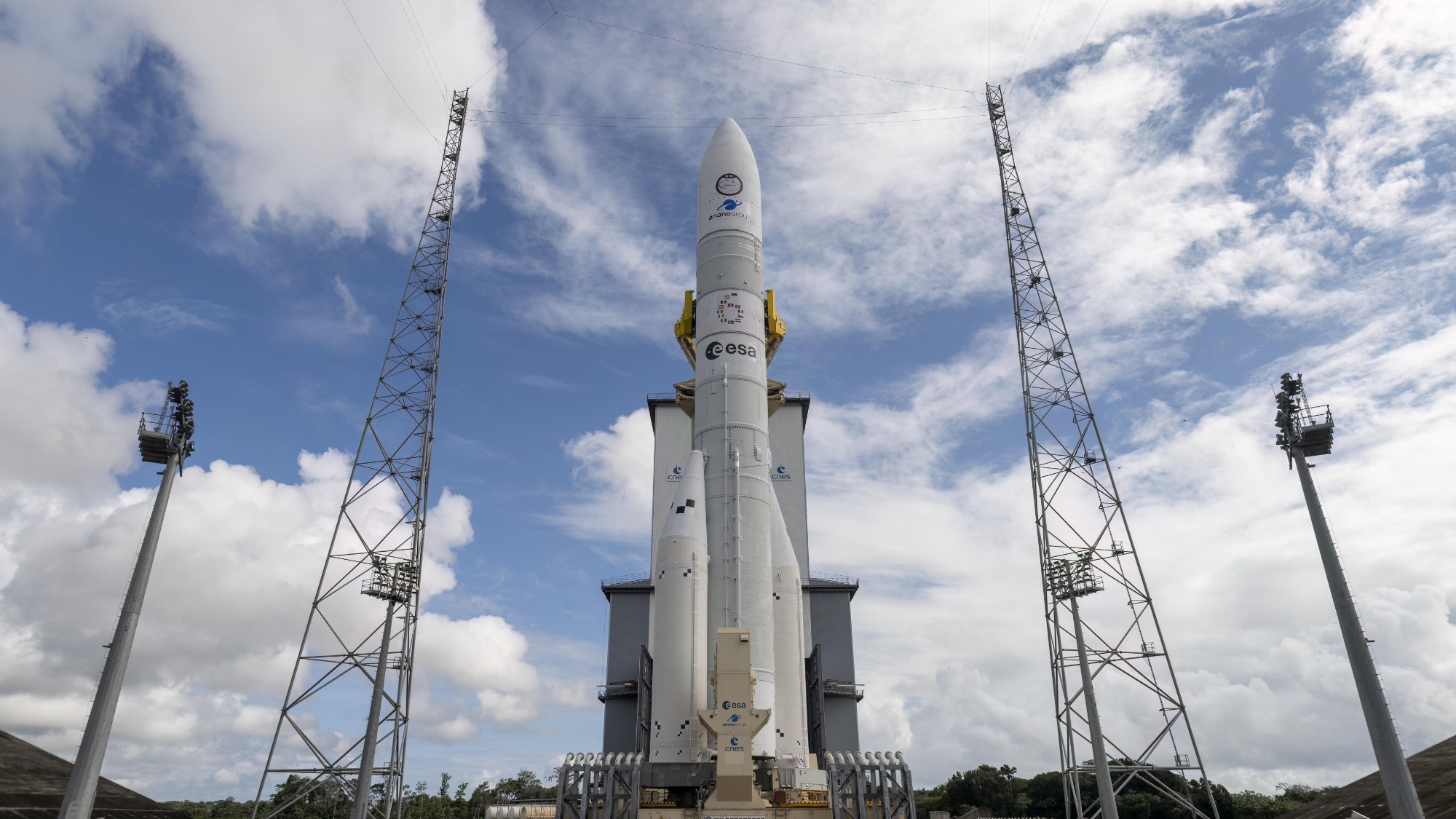Update for 11 a.m. ET: ESA is now targeting no earlier than 3 p.m. ET (1900 GMT) due to a "a small issue in the data acquisition system," the agency posted on X. Coverage begins at 2:30 p.m. ET (1830 GMT); watch it live here courtesy of ESA.
Europe's new heavy-lift Ariane 6 rocket is set to make its long-delayed debut today (July 9).
If all goes according to plan, the Ariane 6 will launch from Europe's Spaceport in Kourou, French Guiana, on Tuesday during a four-hour window that opens at 3 p.m. EDT (1900 GMT).
You can watch the launch live here at Space.com, courtesy of the European Space Agency (ESA); coverage will begin 30 minutes before liftoff.

The Ariane 6, which is operated by the French company Arianespace on behalf of ESA, will replace the venerable Ariane 5, which retired last year after 117 flights over nearly three decades.
The Ariane 6 has been in development for nearly a decade. It was originally scheduled to debut in 2020, but technical issues and outside problems such as the COVID-19 pandemic and Russia's ongoing invasion of Ukraine pushed the timeline back multiple times.
Europe has high hopes for the new launcher, which is expected to be flying nine to 12 times per year by 2026.
The Ariane 6 "will ensure our guaranteed, autonomous access to space — and all of the science, Earth observation, technology development and commercial possibilities that it entails," ESA officials wrote in a preview of the debut launch.
"With many features brand-new to Ariane 6, we'll be able to carry more and take it further, while sustainably disposing of the launcher's upper stage to prevent it [from] becoming space debris," they added.
Related: At long last: Europe's new Ariane 6 rocket set to debut on July 9
The Ariane 6 will deploy nine cubesats into low Earth orbit (LEO) on Tuesday's flight, if all goes according to plan. The rocket will also carry a variety of non-orbital experiments, including two reentry capsules that will get a trial by fire as they return to our planet through its thick atmosphere.
The rocket's upper stage will come back to Earth as well, as ESA noted in its mission preview. But the upper stage won't survive the trip, burning up in our air instead.







